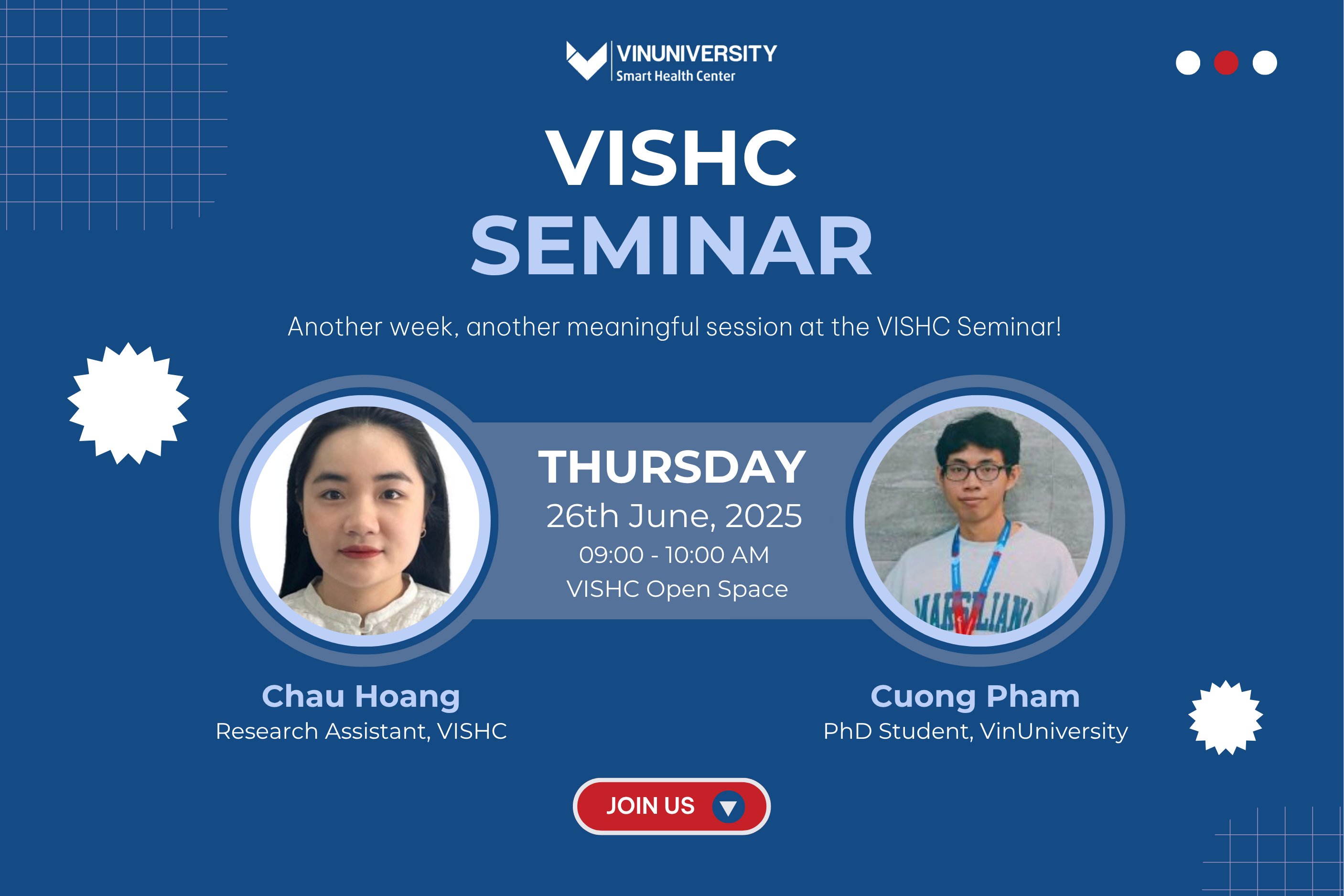
📅 Date: Thursday, 26th June, 9 AM – 10 AM (Hanoi, GMT +7)
🛎 Format: Offline
📍 Venue: VinUniversity, VISHC Open Space
📣 Topic:
1️⃣ REDUCED GRAPHENE OXIDE-BASED ABSORBANCE BIOSENSORS FOR DETECTING ESCHERICHIA COLI DNA
📌 Speaker: Chau Hoang, Research Assistant, VISHC
💡 Abstract: Escherichia coli is a major concern in food safety, water quality, clinical diagnostics, and environmental monitoring, necessitating sensitive and specific detection methods. This study introduces a reduced graphene oxide (rGO)-based biosensor for the detection of E. coli DNA. The rGO was synthesized via a modified Hummers’ method followed by hydrothermal reduction, resulting in a stable, functional sensing platform. Amino-modified probe DNA specific to E. colimarkers was immobilized onto the rGO surface, enabling selective hybridization. Detection is based on absorbance changes at 273 nm, with a linear response observed across 0–476.19 fM and a detection limit of 80.28 fM. The biosensor demonstrated high selectivity against non-target bacteria including Bacillus subtilis, Enterococcus, Vibrio proteolyticus, and Staphylococcus. Optimization confirmed the amino-E. coli BL21 probe as the most effective. These findings suggest that the rGO-based biosensor offers a promising platform for rapid and accurate pathogen detection in various applications.
2️⃣ TOWARDS IMPROVED DIGITAL PHENOTYPING FOR MENTAL HEALTH ASSESSMENT: PILOT DATA AND FRAMEWORK DESIGN
📌 Speaker: Cuong Pham, PhD Student, VinUniversity
💡 Abstract: In Vietnam, the incidence of mental health disorders is rising, with anxiety and depression among the most prevalent yet usually undiagnosed conditions. This underscores the urgent need for scalable, low-cost, and stigma-reducing solutions to support vulnerable populations beyond clinical settings. Previous works highlight the potential of digital phenotyping (DP) as physiological and behavioral indicators, with artificial intelligence (AI) integration enhancing the screening’s efficacy at scale. Yet, modeling DP data in real-world settings presents key challenges due to the heterogeneous nature of sensor streams, limiting its applicability in low-resource environments. Our current study has two objectives: first, we build and validate a multimodal AI framework for different DP-based well-being modeling tasks; secondly, we build a seamless acquisition system and implement large-scale data collection on Vietnamese populations. In the former aim, our preliminary results on two public datasets suggested that the proposed framework improves both in-situ and outcome response modeling compared to conventional methods. In the latter aim, our pilot system is being validated in collaboration with clinical units in Vietnam, toward enabling longitudinal DP monitoring and integrating AI-powered response modeling.